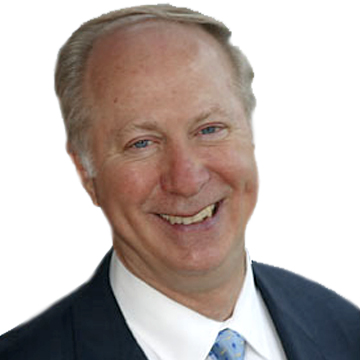 Editor-at-large at U.S. News & World Report and political analyst for CNN and PBS, David Gergen has served as a White House adviser to four presidents; Nixon, Ford, Reagan, and Clinton. He is also a professor at Harvard’s School of Public Leadership. An active participant in American national life for 30 years, Gergen has a lifetime of experience in observing and participating in high-capacity leadership, which he’s distilled into seven vital elements needed for future leaders. The author of Eyewitness to Power, he firmly believes that by identifying the traits of other leaders (and learning from their mistakes), we can increase our own effectiveness and leadership potential.
Editor-at-large at U.S. News & World Report and political analyst for CNN and PBS, David Gergen has served as a White House adviser to four presidents; Nixon, Ford, Reagan, and Clinton. He is also a professor at Harvard’s School of Public Leadership. An active participant in American national life for 30 years, Gergen has a lifetime of experience in observing and participating in high-capacity leadership, which he’s distilled into seven vital elements needed for future leaders. The author of Eyewitness to Power, he firmly believes that by identifying the traits of other leaders (and learning from their mistakes), we can increase our own effectiveness and leadership potential.
Notes from this session follow.
- Video about David Gergen.
- Gergen teaches leadership at Harvard.
- Leadership is a journey, you have to take your own path. Mentors can guide you along the way.
- A teacher of leadership can’t make a leader.
- More important issue is can you create a culture where people aspire to both serve and lead.
- How does a leader get better at leading?
- Be a reflective practitioner. You learn leading by being in the area and doing it, but also by reading.
- Not every reader is a leader, but every leader is a reader. – Harry Truman.
- Good leaders do post-game analysis.
- It’s easy in a leadership position to confuse motion with progress.
- Hold yourself accountable by setting goals and then assessing progress at the end of the goal period.
- When you’re down on the dance floor dancing, it’s important to go up in the balcony and look down.
- Read “Eye Witness to Power” by Gergen
- Most admirable quality of presidents worked for:
- Nixon – best strategist, could look into the future. Someone who can look farther back can look farther ahead.
- Ford – most decent
- Clinton – very bright, admired most for his resilience.
- Reagan – best leader since FDR. Strong principles, contagious optimism.
- Achilles heal of each president?
- Nixon – had a very dark side. Had demons he couldn’t control.
- Ford – naive.
- Reagan – detachment. Sometimes let others put their hands on the wheel.
- Clinton – cracks in his character. Biggest mistake was not coming clean in Lewinski scandal.
- Does every great leader have a great flaw? Every person has flaws. How do you come to grips with your flaws.
- Have to be realistic enough that some people aren’t going to overcome their flaws.
- How do we reconcile leaders’ public and private lives? MLK struggle with his private life, but never claimed to be a saint.
- If you want to go fast, go alone. If you want to go far, go together.
- Symbols matter to people. Ghandi’s clothes. Reagan’s horse. It’s part of the leaders brand.
- Speaches take place within a context… Listeners bring questions about the speaker. Who the speaker is says as loudly as what they say.
- With so much noise we have to decide who we’re going to listen to. Issue of trust.
- 3 elements to a good speech. Ethos (credibility of the speaker), Logos (logic of the speech), Pethos (emotion).
- If a speaker goes more than 35 minutes only about 25% continues to listen. The rest are fighting to stay awake or engaging in sexual fantasies.
- If the audience doesn’t know you, the introduction is important to give you credibility. Introduce emotion to get people to open up to you. Mix in the logic with the emotion. Finish with emotion, call to action.
- Personal habits of leaders
- Self-discipline – have control of your life.
- Physically fit – leadership is physically demanding.
- Reflection
- Relationships. People in loving relationships live longer.
- What do you hope is going to happen in a church service?
- Find inner peace.
- Learn something.
- Generation in their 20s & 30s is on a spiritual search.
- Spiritual beliefs are important to leaders – moral compass, good anchors in life (overcomes ego and arrogance)
- Be the change you want to see in the world.
- Each of us comes to the bon fire of this world to warm our hands. Each of us has a responsibility to bring a long to the fire.